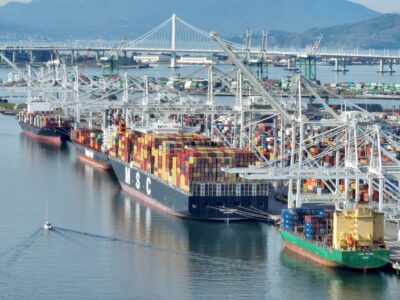California Voters Appear to Reject Big Tax Increase on Business, Spike Rent Control and Back Gig Economy
The Bay Area Council applauded California voters for appearing to reject an estimated $11.5 billion tax increase (Prop. 15) on businesses that would have further damaged the state’s already fragile economy, defeating a rent control measure (Prop. 21) that would have worsened the state’s housing crisis and passing a proposition (Prop. 22) to protect the jobs of thousands of independent ride-hailing drivers. A three-county measure (Measure RR) the Council supported to keep the Caltrain commuter rail system financially alive also appeared to be on a winning route.
“California dodged some dangerous bullets in this election, but many ominous threats remain to our economy and to our recovery,” said Jim Wunderman, President and CEO of the Bay Area Council. “The focus now must quickly return to how we can fully and safely reopen our economy, restore the millions of jobs we’ve lost and avoid needless regulation that undermines our economic competitiveness and chases away new investment and businesses.”
The results were far less sanguine in San Francisco, where voters passed three untimely and misguided measures to raise business taxes in the middle of the worst economic downturn in generations, and many other financially struggling cities across the Bay Area where voters approved a raft of new general taxes on businesses and consumers. The Council, which has long supported taxes for specific purposes, took the unprecedented step this election of formally opposing 34 general tax measures around the region on business, hotels, utilities, real estate transfers and consumers.
“The middle of pandemic-fueled shutdown is the wrong time to raise taxes. The drip, drip, drip of new general taxes is going to erode the already shaky foundations of local economies decimated by the worst downturn in generations,” Wunderman said. “We must attack the Great White Shark of public pension and post-retirement liabilities that is hungrily circling our cities and gobbling up a bigger and bigger share of local spending. The fastest and most effective way to shore up municipal budgets is restarting the engine of our local economies, not draining the gasoline tank of capital that businesses need to grow and create jobs.”
The Council has proposed that California explore an economic recovery bond as an alternative to new taxes that can provide state and local coffers with funding they need until the economy is back to full throttle. And with the Presidential election nearing an end, there may be new life for another round of federal stimulus funding to help cities and counties, as well as transportation systems decimated by reduced ridership.
In addition to tax measures, the Council bemoaned the apparent failure of Proposition 16, which would have undone restrictions on affirmative action in hiring and expanded economic and educational opportunities for millions of Californians.





